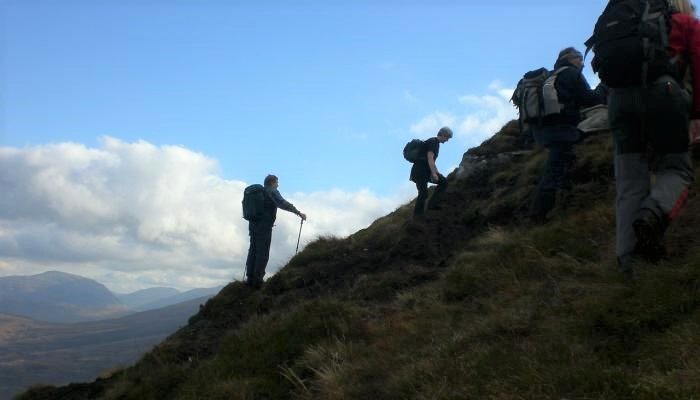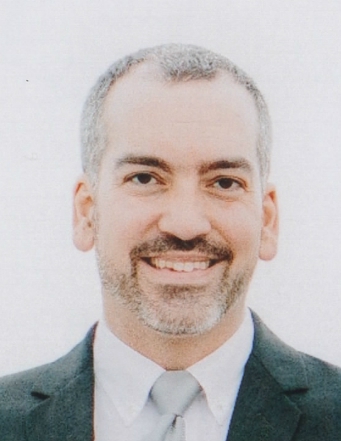New Designs for School
What Does Deeper Learning Sound Like?
Topics

We’ve all had the experience of truly purposeful, authentic learning and know how valuable it is. Educators are taking the best of what we know about learning, student support, effective instruction, and interpersonal skill-building to completely reimagine schools so that students experience that kind of purposeful learning all day, every day.
As educators in the Assessment for Learning Project (ALP) community have worked to fundamentally rethink assessment, many have bumped up against some deeply ingrained beliefs and assumptions about what learning really is.
This post originally appeared on Learning Deeply, an Education Week blog.
As educators in the Assessment for Learning Project (ALP) community have worked to fundamentally rethink assessment, many have bumped up against some deeply ingrained beliefs and assumptions about what learning really is.
When we reflect individually on our own most impactful learning experiences, the ones we remember tend to be deeply social, to make us feel like we belong in a community, and to connect with our goals and aspirations. There is not only a long philosophical tradition that supports this understanding of learning, but also a robust body of research. And yet, many of the structures of public education (in particular our nearly ubiquitous emphasis on ranking and categorizing) continue to create incentives that push learning environments in the opposite direction.
How might we find a common language about learning that educators, policymakers, families and students can use to align our education systems and structures with what we know and value about learning? I believe it requires listening, together, to the sound of learning—in the voices of learners themselves.
This is why we asked our ALP grantee-partners to interview students about their experiences of learning. One of the most exciting parts of listening to these clips was how the students’ words brought the academic, highly conceptual reading I’ve been doing on sociocultural learning theory down to earth. Each of the bolded links below will take you to audio clips of students reflecting on their learning. Before you listen, two important caveats: I am not an expert in sociocultural learning theory, and the ideas below are by no means comprehensive. So consider this an invitation to listen and learn along with me.
Students Can Learn to Be Better Learners
“One of the most important aspects of cognition is metacognition—the process of reflecting on and directing one’s own thinking. Metacognition is crucial to effective thinking and problem solving and is one of the hallmarks of expertise in specific areas of knowledge and skill.”
–Knowing What Students Know: The Science and Design of Educational Assessment. National Academy Press, p.4
I have sometimes found myself using “metacognition” more as a buzzword than as a way to explain a fundamental process of learning. The ALP student voices explain beautifully several of the ways that metacognition supports learning. First, it requires students to understand a learning goal, then to self assess their current learning against clear criteria for that goal. Sequencing these success criteria on a learning progression helps students better understand their path forward. Self-assessment feels empowering to students, supporting self-efficacy by allowing them to focus on where they can grow, rather than what they don’t know. All of these pieces together help students use appropriate thinking and learning strategies to move toward their goals.
There is a name for being able to set goals, monitor progress toward them, believe that you can improve, and use appropriate strategies to support the learning necessary to meet these goals. It’s student agency, and it is perhaps the most important thing I want for my own kids in their learning.
Learning is a Fundamentally Social Process
“Social contexts for learning make the thinking of the learner apparent to teachers and other students so it can be examined, questioned, and built upon as part of constructive learning.”
–Knowing What Students Know, National Academy Press, p.89
In the above quote, “constructive learning” refers to the process of deepening understanding by connecting new information with prior knowledge. ALP teams in Henry County Schools, Arizona, and Leadership Public Schools are working to increase the amount and quality of formative feedback students receive and give. Listening to students makes clear how feedback is integral to learning, and why positive relationships and school/classroom culture are essential.
As one student explains, receiving specific, detailed feedback on her emerging thinking helps her see gaps in her understanding. But getting this kind of rich feedback requires sharing your emerging understanding before it is fully formed, which is often difficult (for adults and children alike). Strong relationships, as the student says, make it easier to overcome this vulnerability. When students feel that the people in their class are there to help them learn, as a younger student explains, people can experience feedback not as criticism, but as something that makes us feel smarter and stronger in our learning.
The social context for learning goes well beyond the classroom and schools. These contexts are nested within the local community, the places where students will apply their learning outside of school, and the cultural resources students bring to their learning.
Learning is Deeply Influenced by Community...
“Learners of all ages are more motivated when they can see the usefulness of what they are learning and when they can use that information to do something that has an impact on others—especially their local community.”
–How People Learn: Brain, Mind, Experience, and School. National Academy Press, p. 61
In Virginia, a network of districts are creating opportunities for students to demonstrate what they know through student-designed projects and other forms of student-led assessment. As a student explains, a project exploring police violence placed his learning in a meaningful context and motivated him to push for deeper understanding.
...By the Specific Places Students Will Apply Their Learning…
“Experts’ knowledge cannot be reduced to sets of isolated facts or propositions but, instead, reflects contexts of applicability: that is, the knowledge is ‘conditionalized’ on a set of circumstances.”
–How People Learn, p. 34
This is one of the reasons Del Lago Academy has partnered with practicing scientists to create performance-based badges that help students demonstrate knowledge in the context of real-world scientific processes. As a student explains, this contextualization helps her remember the knowledge better than if she was simply memorizing it for a test.
...And By the Cultural Traditions and Resources Each Child Brings to Their Learning
“It is obvious that children from different backgrounds and cultures bring differing prior knowledge and resources to learning. Strong supports for learning exist in every culture, but some kinds of cultural resources may be better recognized or rewarded in the typical school setting.”
–Knowing What Students Know, p.89
Educators in Hawai’i have created a culturally responsive framework for learning and assessment, known as BREATH or HĀ. BREATH stands for Belonging, Responsibility, Excellence, Aloha (welcoming), Total Well-Being, and Hawai’ian language and culture. This framework explicitly values multiple stories and cultures, including indigenous Hawai’ian culture, as elements of the learning context. The words of this student make clear how the embrace of her culture fosters a sense of belonging and responsibility, and how this helps her set and make progress toward her learning goals.
A Humble Proposal
These are just a few examples of what deeper learning sounds like. It’s what “sociocultural learning theory” sounds like. And most importantly to me as a parent, these are exactly the kinds of things I want my own kids to be able to say. So here is my humble proposal: we should be talking as much about learning models as we do about instructional models, and we should be articulating our theories of learning as clearly as we do our theories of change. And the best way to bring these conversations down from the conceptual clouds, to find a shared and practical language for talking about learning, is by listening deeply to young people reflect on their own experiences of learning.




